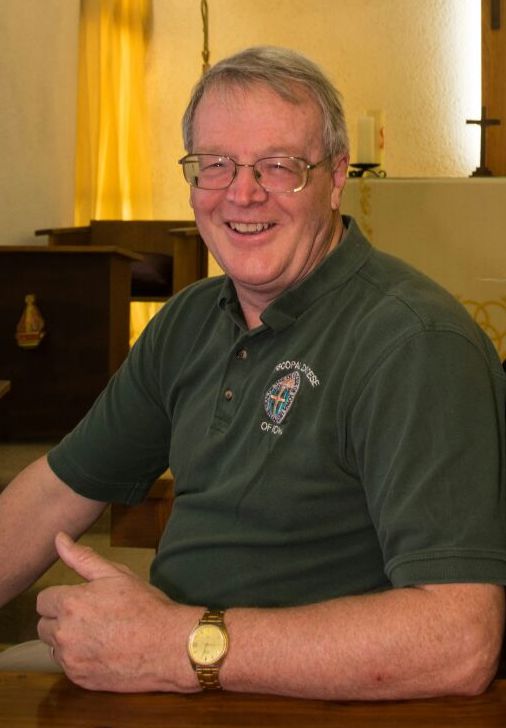A reflection by Bishop Alan Scarfe
We all know that mission is a mutual experience, and that is certainly true when it comes to the presence of Anglicans who come to live in the United States. They often bring with them an enthusiasm for mission and a vitality of faith that has only been made stronger because of the resilience needed to negotiate the immigration process of this country, on top of the suffering of fleeing war and violence, and life in refugee camps.
A whole generation of young people from the nations of Sudan and especially South Sudan typify this experience as they are growing their families within the Episcopal Church. Or at least this would be their wish. Rather, the story of their welcome within the Episcopal Church has been a varied one.
At the General Convention in Austin in 2018, a resolution was passed to form a task force to establish a formal conversation between the Episcopal Church and the Anglican Episcopalians of the South Sudan Diaspora. The task force extended its work through establishing a steering committee mostly of clergy from within the Diaspora, and we began the process of gathering invitees for such a conversation at a conference to be held around Labor Day, 2020 in Kansas City.
Of course, COVID restrictions kept pushing the conference back. The task force developed initial conversations regionally by Zoom to build involvement, and the conference was postponed twice. A half-day Zoom conference was held right before the 2022 General Convention, and finally this October an in-person conference became possible.
Thirty clergy and congregational leaders from the South Sudan Diaspora met in Kansas City over October 1-3 for talks chiefly among themselves. Members of the task force acted as listeners, and the steering committee facilitated.
One major issue was the difficulty of finding permanent places for worship and gatherings within Episcopal churches. Some communities had been received in Lutheran or Presbyterian churches, but the clear message from the conference was that they were Episcopalian and wanted to have their children raised within the Anglican tradition of their people back home. The Episcopal Church, it was stated, is losing the gifted leadership of its South Sudanese American members because of the common experience of a lack of hospitality.
A second concern surrounded the need to understand better the American system for providing for family life. Clergy were having to work long hours and were generally expected to serve as non-stipendiary in the church. Negotiating the requirements of further education within the Episcopal Church was confusing and frustrating, especially for those who were discerning calls to ordination.
There was fear that the Sudanese community’s children were losing pace in their faith development because of the lack of training for Sunday School teachers as well as access to appropriate resources that would hold their attention in American society. They also wanted assistance in finding scholarships for their children, especially at Episcopal schools and colleges.
There were individual ministry support needs. We heard of a leader from Atlanta who sends out the entire lectionary readings in Dinka to as wide a network of congregations as he can find. He has help in handling lessons from the New Testament but finds no modern translation for the Old Testament lessons, so he translates them himself, and all in his “spare time.” His desire is to know how to upload everything on the internet and make his work accessible in a digital form year by year.
Full reporting of the conference will be included in the 2024 General Convention Blue Book process. The conference findings will be reviewed by the current task force later in October with the intention of being passed on for development and advocacy to a new task force created by a continuation resolution in Baltimore. Out of their work, it is expected that new resolutions will be presented to the 2024 General Convention in Louisville.
We hope that the newly named Office of African Descent Ministries will be able to address some of the issues raised. The bishops on the task force intend to address the House of Bishops on the role of bishops in increasing support and hospitality. Sometimes our mission potential is right among us, and the South Sudane se beg the question: Where are we within the Beloved Community?
se beg the question: Where are we within the Beloved Community?
Alan Scarfe is the retired Bishop of Iowa, where he cultivated a missional relationship with the Diocese of Nzara in South Sudan. He is a member of the GEMN Board of Directors.
A missional thought:
“All of our mission and evangelism begins with the mission of God; God is the great missionary who chooses in creating and redeeming love to be for us. Christ Jesus is the great evangelist who, through the power of the Holy Spirit, is working constantly, faithfully and radically to draw all people to himself.”
– Lambeth Call on Mission and Evangelism, 2022

